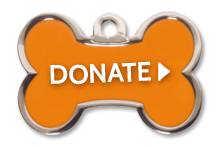Ask Crystal: Puppy vs Grown Dog
Welcome to “Ask Crystal,” where you can ask your pet behavior questions! You can submit your question for Crystal at the bottom of the page!
Dear Crystal,
We are considering adding a new dog to our household. We aren’t sure if we should adopt a puppy or an adult. On one hand an adult dog would already be housetrained and require less work. But with a puppy we can make sure it turns out the way we want it to. I am torn and not sure what to do. Any advice?
Sincerely,
Ready to adopt
Dear Ready,

I am so happy that you are being so thoughtful about this decision. There are different challenges on both sides and a lot of myths that I might be able to clear up for you. Hopefully, this information will help you make an informed decision about what is right for your family.
There are a lot of benefits to adopting an adult dog, but it is definitely different than adopting a puppy. As far as housetraining, I wouldn’t assume that because a dog is an adult it is housetrained. Some of the dogs that we meet have been living mostly outside. Dogs that are kept exclusively outside are not often reinforced for going potty outside because no one is watching them the majority of the time. There are also dogs that were housetrained in their previous home but have not yet generalized to their new house. These dogs should pick up on housetraining fairly quickly. Then there are dogs like my new addition who were trained in one manner such as off leash and don’t understand that they can also potty while on a leash. Regardless of the reason, you will handle the situation in a similar manner.
Housetraining requires a vigilant eye and a lot of reinforcement. I always tell adopters to treat their new adult dog the same way you would a puppy. They should not have freedom of the house and you should always go outside with them for potty breaks and treat them generously for going to the bathroom outside. The same goes for chewing inappropriate items. I don’t assume because a dog is an adult that they won’t chew things up. If they were never told what is appropriate to chew and what isn’t as a puppy, they still don’t know that. Always keep the dog in the room with you, so that you can monitor and redirect onto appropriate items. Crate training or confinement will be necessary when no one is available to watch the dog. The benefit to an older dog is that you know what you are getting more than with a puppy. Once the dog is in the 3-5-year range, they start to mature and become who they will be in regards to their personality. They will also require less exercise for the most part than their puppy counterparts. Unlike a puppy, their body has the ability to hold their bladder and bowels for a few hours at a time.
A puppy is not, unfortunately, a blank slate. As a person who has owned a dog-aggressive dog that was raised from a puppy and did everything they were told to do, this idea is very frustrating. You can do everything you are supposed to do and still have behavior issues. There is so much that goes into forming a dog’s behavior. Genetics being the very first factor but also epigenetics may have a profound effect of the future behavior of that dog. The majority of people are not aware of either of those factors in the puppies they adopt. We can of course, tip the scales in our favor by doing a lot of socializing during the puppy socializing period of 7-16 weeks. I very strongly recommend puppy socializing classes to keep on task. Let’s also not forget the mouthing period in puppies and teaching bite inhibition as well. Once the socializing period is over it is time to start working harder on their manners training as well. Raising a puppy is a whole lot of exhausting work and at the end of it there are no guarantees when it comes to behavior.
All that being said, depending on your situation at home, sometimes a puppy is going to be the right fit. You may have a dog at home that won’t accept another adult dog as readily as a puppy. It can sometimes be easier to get a puppy used to cats than some adult dogs. If you have a unique situation at home that a puppy would more readily adapt to than an adult, a puppy may be easier to adjust to that situation.
There are benefits and downsides to adopting an adult or a puppy. I hope this information has been helpful for you to make an informed decision. No matter what you choose, there will be stress and a lot of work. After all of that work, there will also be the immeasurable joy of adding a dog to your family. Nothing good comes without sacrifice. Good luck in your search!
Until next time,
Crystal







